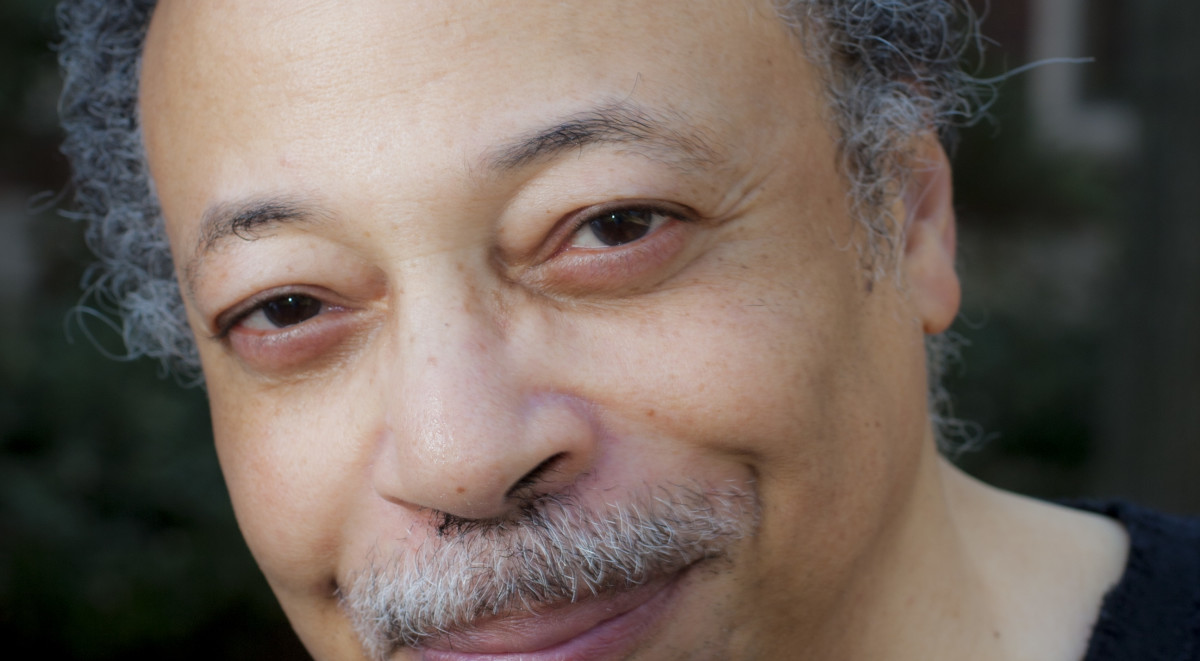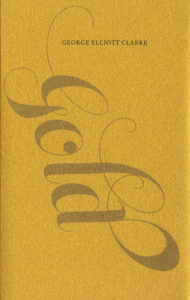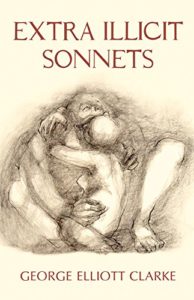
PRISM international is honoured and excited to have Canadian Parliamentary Poet Laureate George Elliott Clarke as the judge of the inaugural Pacific Spirit Poetry Prize. Executive Editor Curtis LeBlanc had the opportunity to pick his brain on a few topics, including what he’s looking for in a winning poem.
The deadline for submissions to the Pacific Spirit Poetry Prize is October 15th, 2016. Note that there are no restrictions as to where poets reside or what they write about for this contest. For full rules and regulations, please visit our Contests Page.
A revered poet, George Elliott Clarke was born in Windsor, Nova Scotia, near the Black Loyalist community of Three Mile Plains, in 1960. A graduate of the University of Waterloo (B.A., Hons.,1984), Dalhousie University (M.A., 1989), and Queen’s University (Ph.D., 1993), he is now the inaugural E.J. Pratt Professor of Canadian Literature at the University of Toronto. An Assistant Professor of English and Canadian Studies at Duke University, North Carolina, 1994-1999, Clarke also served as the Seagrams Visiting Chair in Canadian Studies at McGill University, 1998-1999, and as a Noted Scholar at the University of British Columbia (2002) and as a Visiting Scholar at Mount Allison University (2005), and as the William Lyon Mackenzie King Visiting Professor in Canadian Studies at Harvard University (2013-14). He has also worked as a researcher (Ontario Provincial Parliament, 1982-83), editor (Imprint, University of Waterloo, 1984-85, and The Rap, Halifax, NS, 1985-87), social worker (Black United Front of Nova Scotia, 1985-86), parliamentary aide (House of Commons, 1987-91), and newspaper columnist (The Daily News, Halifax, NS, 1988-89, and The Halifax Herald, Halifax, NS, 1992-). He lives in Toronto, Ontario, but he also owns land in Nova Scotia. His many honours include the Portia White Prize for Artistic Achievement (1998), Governor-General’s Award for Poetry (2001), the National Magazine Gold Medal for Poetry (2001), the Dr. Martin Luther King Jr. Achievement Award (2004), the Pierre Elliott Trudeau Fellowship Prize (2005), the Dartmouth Book Award for Fiction (2006), the Eric Hoffer Book Award for Poetry (2009), appointment to the Order of Nova Scotia (2006), appointment to the Order of Canada at the rank of Officer (2008), appointment as Poet Laureate of the City of Toronto (2012-15), appointment as Parliamentary [National] Poet Laureate (2016-17), and eight honorary doctorates.
CL: You began your role as Canadian Parliamentary Poet Laureate in January of this year and you’re now over a half-year into your term. Can you give our readers a little summary of what you’ve been up to recently—both as a poet and as Poet Laureate?

GEC: As a poet, I’ve continued to be productive, publishing Extra Illicit Sonnets (Exile, 2015) and Gold (2016), and I’m about to publish Canticles I: MMXVI in December. Being a poet is relatively easy, for it is who I am, who’ve been, and what I do and have done. But the role of Parliamentary Poet Laureate is more difficult, for, though I know what I should do and what could be done, my ‘handlers,’ so to speak, are nervous about potential scandals or controversies that I–or other poets–could provoke, thus damaging the brand of Parliament. So, I’ve faced–and do face–an uphill battle in trying to convince well-meaning civil servants that my function should exceed just rambling the countryside giving readings to all and sundry. Concretely, I’ve made steps toward establishing a national poetry map and a Poets’ Corner in Ottawa. I also hosted readings from Shakespeare in April and National Aboriginal Day readings–June 21–also in Ottawa.
You also previously served as Toronto’s Poet Laureate for three years. How have the two experiences been similar or different from each other?
Although the City of Toronto is–perhaps–less august than the Government of Canada, I can say that it was a lot easier and faster to get things done–OR rejected–at the local level than at the federal level. I doubt that I will accomplish half as much as what I did in Toronto even though, on paper, I have more money–for travel, for programming, etc., at the federal level.
As a poet and ac ademic, it seems you’ve always approached with a social conscience. Do you think it’s a poet’s duty to address social issues and engage in these types of conversations, or is there some leeway in the artform to remain uninvolved?
ademic, it seems you’ve always approached with a social conscience. Do you think it’s a poet’s duty to address social issues and engage in these types of conversations, or is there some leeway in the artform to remain uninvolved?
On this question, I’m a liberal: Write social-conscious poetry, if you care to; or write art’s-for-art’s-sake poetry, if you prefer; or write both at the same time in one’s life–or at different times. If poets can’t exercise freedom of speech, then who can?
As a bit of a follow-up to the previous question: Is such a thing as apolitical poetry even possible?
Apolitical poetry depends upon the social consciousness of either the recipient or the writer. One might want to think that a pastoral poem, a religious poem, or a love poem are apolitical. But that’s only true if one believes that poetry exists–pristine–in a vacuum. Any poet who exists in a social context is also existing in a political one, whether he/she recognizes the fact.
You’ll be judging the very first Pacific Spirit Poetry Prize, a new incarnation of our annual poetry competition. What will you be looking for in a winning poem?
Lyrical concision, emotional pressure.
There you have it! Submit your poems now for a shot at $2,500 in prize money and the very first Pacific Spirit Poetry Prize title!
